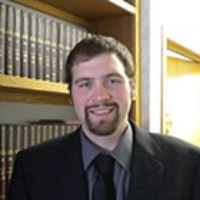Wadena DUI-DWI Lawyer, Minnesota
Not enough matches for Wadena DUI-DWI lawyer.
Below are all Wadena Criminal lawyers.
Jason Robert Sellnow
✓ VERIFIEDCriminal, Accident & Injury, Divorce & Family Law, Car Accident
An experienced Attorney who practices in the areas of Estate Planning, Trusts, Probate, Real Property transactions and title work, Civil Litigation, F... (more)
Matthew Stewart Van Bruggen
Divorce, DUI-DWI, Banking & Finance, Collection
Status: In Good Standing Licensed: 22 Years
Kristine Ann Peterson-Lahr
Criminal, DUI-DWI, Adoption, Child Support
Status: In Good Standing Licensed: 23 Years
Matthew Lee Enger
Wills & Probate, Child Custody, DUI-DWI, Corporate
Status: In Good Standing Licensed: 10 Years
Reid Wheeler Brandborg
Intellectual Property, Divorce & Family Law, DUI-DWI, Criminal
Status: In Good Standing
Reid Wheeler Brandborg
Intellectual Property, Divorce & Family Law, DUI-DWI, Criminal
Status: In Good Standing Licensed: 20 Years
Gilda Marlene Clark
Real Estate, Immigration, Estate, Divorce & Family Law, DUI-DWI
Status: In Good Standing Licensed: 25 Years
Marcus William Miller
Lawsuit & Dispute, Government, Criminal, Business
Status: In Good Standing Licensed: 28 Years
Paul Bjorn Hunt
Lawsuit & Dispute, Divorce & Family Law, Criminal, Accident & Injury
Status: In Good Standing Licensed: 22 Years


